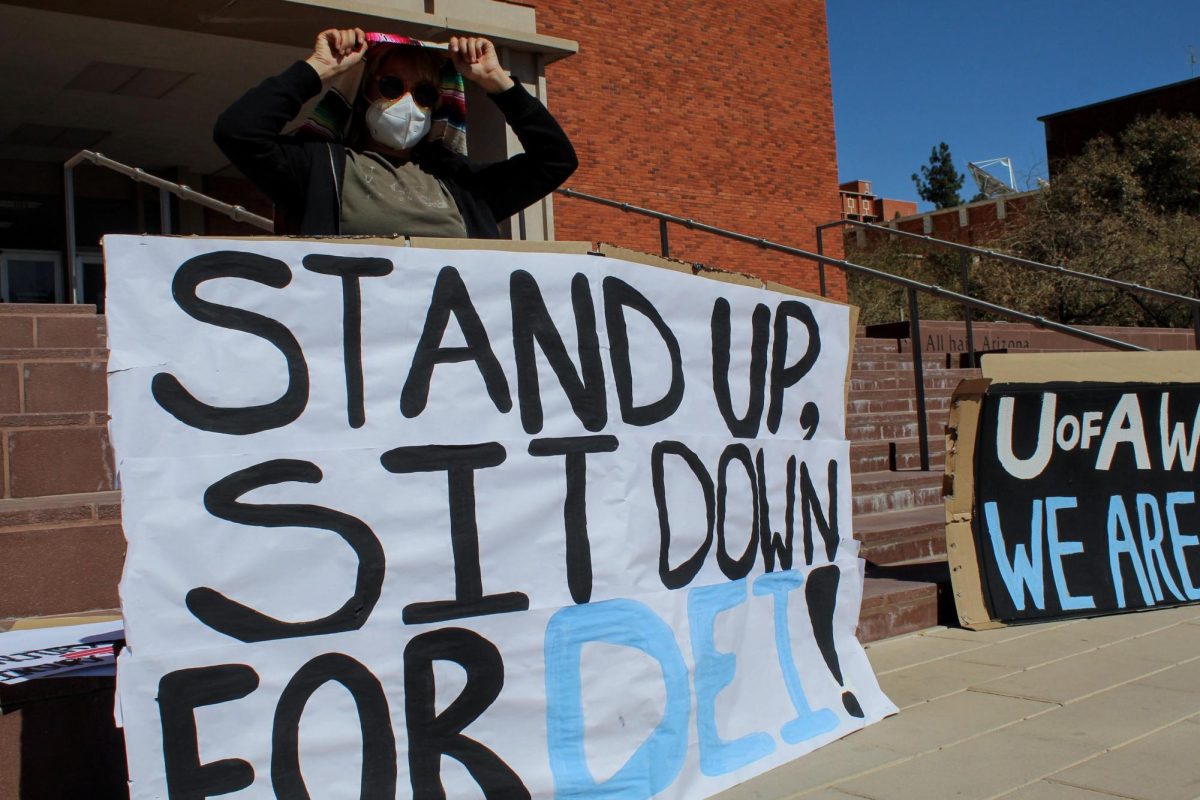According to a recently released annual report from Tech Launch Arizona, the University of Arizona is on track to expand its status as one of the nations top research universities through its efforts to commercialize its own innovations and research.
Created in 2012, Tech Launch Arizona’s purpose is to generate “social and economic impact by bringing the inventions of the UA from the lab to the world,” said the report.
Expanding on this message, TLA staff members say that the main goal is to maximize the research capabilities of UA faculty and student members through collaboration and marketing strategies. The report was released to underscore some of the recent accomplishments of these efforts.
“This annual report lets people know how we do things and how we’re doing,” said Paul Tumarkin, the marketing and communications manager at TLA. “It’s a statement of transparency.”
The report describes TLA’s efforts to foster an “ecosystem” of interconnected research, marketing and business groups to help identify and develop helpful, innovative technologies.
“There are two elements of this ecosystem,” said TLA Vice President, David Allen. “The first is a strong element of support from research at the UA. The second is commercialization, which is a continuation of this research.”
Allen said that before organizations like TLA, the introduction of research ideas to a market was a procedure that was actually isolated from the researchers themselves. Their goal is to help expand this process by collaborating with more “inventor experts” in UA research and faculty positions.
“We’ve created a 1300 person ‘domain expert’ network,” Allen said. “It involves a lot of highly talented people – mostly alumni and friends of the university – who bring skill sets that we don’t have.”
This ecosystem is like a multi-tiered process that allows an idea for an innovation or technology to be reviewed from a variety of perspectives; marketing, scientific, and business. By increasing the level of review a proposed invention undergoes, people at the TLA are able to get a better understanding of “what the market needs and what the technology can offer,” Allen said.
One recent outcome of this updated process is the medication management company, SinfoníaRx. The company stemmed from an idea to track multiple medications that people take in order to ensure there is no adverse interaction between them. Over time, the completed project involved students and faculty from the College of Pharmacy; professional pharmacists in the industry, plus insurance and pharmaceutical companies themselves.
The technology behind SinfoniaRx is just one invention out of the hundreds that UA researchers have reported to TLA. But apart from offering benefits to consumers, the exhaustive list of inventions and associated companies also offer a number of opportunities to students seeking future career experience in the business, science, and communication fields. As Allen and Turmarkin mentioned, many times, student research from the graduate, or even under-graduate, level is the driving engine for innovation.
“For SinfoníaRx, students had interactions with other pharmacists and businessmen that’ll set them above many others in a competitive job environment,” Allen said.
The commercialization element of TLA also has much to offer prospective public relations and marketing professionals.
Joshua Dudas, a communication and sociology senior, works as an analyst in the business intelligence unit at TLA. His main job is to serve as the translational bridge between researcher’s innovation proposals and the marketing experts charged with commercializing those proposals.
“I get a bunch of information from tech librarians, students and researchers. My job is to make it precise and put it into layman’s terms. I take 50 pages or more of info and I put it into a page-and-a-half,” he said.
Dudas said that his work, while challenging, is highly beneficial for his future goal of working in public relations.
“I’m learning how to write executive summaries, and how to be very concise with my writing,” he said. “I’m able to learn how innovations are brought about in a process of research, and how they’re brought to the market in a process of commercialization.”
Apart from gaining job experience, Dudas also says that work at TLA on its own is very fulfilling.
“I’m definitely very honored to work here, to help other people and have a positive impact on the inventor, and to see down the road where the inventions are going to be used to visibly benefit other people’s lives.”
Follow Isaac Rounseville on Twitter.








